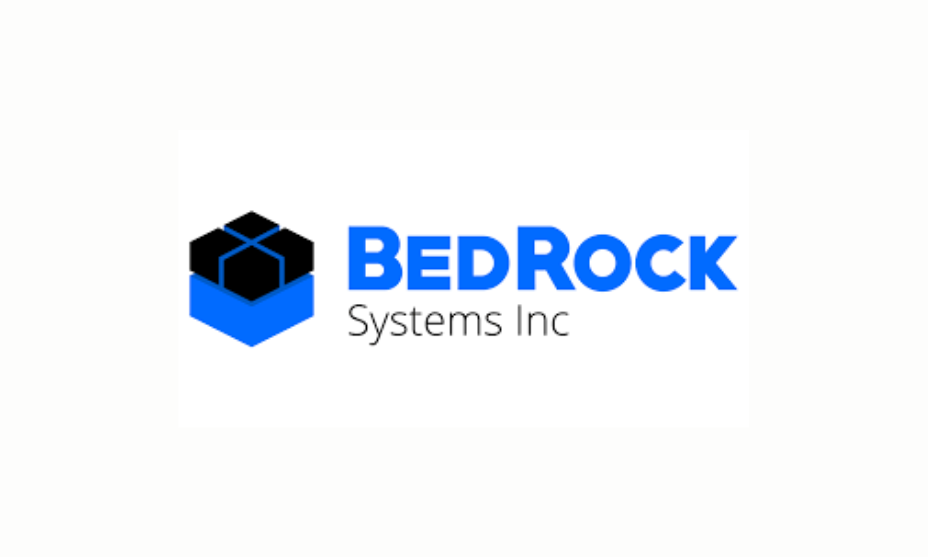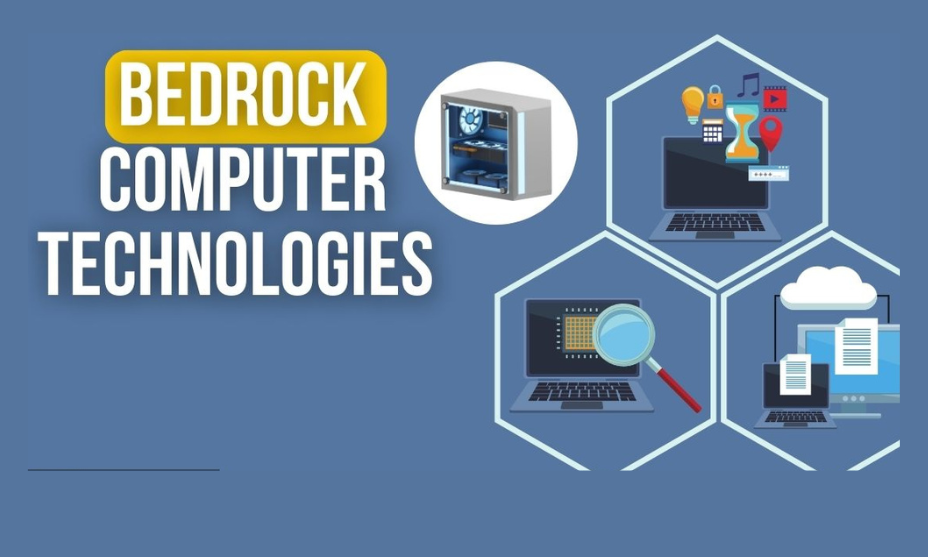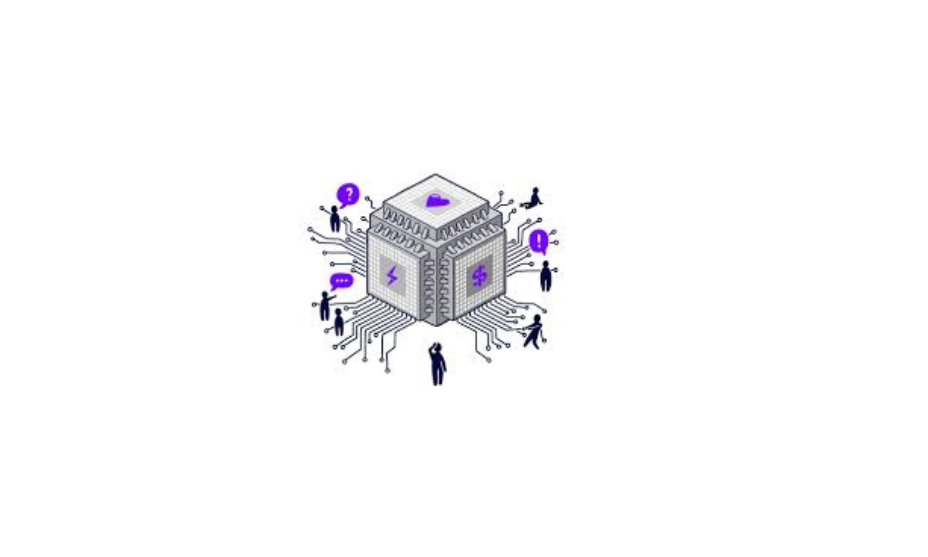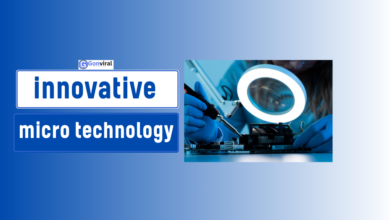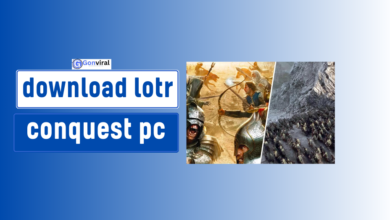Bedrock Computer Technologies: Innovating the Future of Digital Solutions
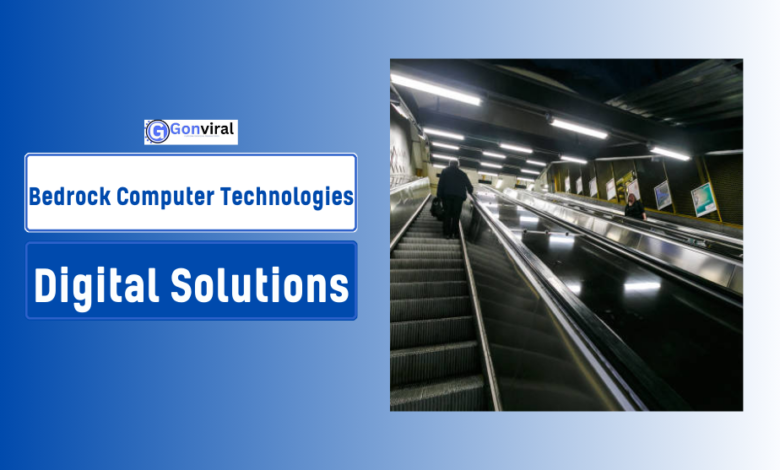
Introduction
In the fast-paced world of technology, Bedrock Computer Technologies stands out as a beacon of innovation. With a commitment to delivering top-tier digital solutions, this company is reshaping the landscape of information technology (IT). From cloud computing to artificial intelligence (AI), Bedrock is at the forefront of tech innovation.
Mission and Vision
Bedrock Computer Technologies aims to empower businesses through next-generation technologies. Their mission is to provide smart solutions that enhance operational efficiency and drive growth. The vision is clear: to be a leading IT solutions provider, offering comprehensive services that transform how organizations operate.
History and Growth Trajectory
Founded in the early 2000s, Bedrock started as a small software development firm. Over the years, it has evolved into a major player in the technology services sector. With a consistent focus on software engineering and digital infrastructure, Bedrock has experienced significant growth, expanding its service offerings and client base.
What is the foundation of technology?
Apple Computer and Symantec collaborated to create Bedrock, a cross-platform programming framework that allowed developers to create apps for both Microsoft Windows and Apple Macintosh computers.
What kind of technology will there be in 2050?
The integration of a wide range of technologies, such as quantum computing, the metaverse, augmented reality, nanotechnology, human brain-computer interfaces, driverless technology, artificial intelligence, workplace automation, and robotics, will cause the world of 2050 to look very different from what it does today.
Key Components of Bedrock Computer Technologies
Hardware Components
- Central Processing Unit (CPU): The brain of the computer where most calculations take place.
- Memory (RAM): Temporary storage that provides space for the CPU to read and write data quickly.
- Storage Devices: Hard drives (HDD), solid-state drives (SSD), and other forms of storage that hold data persistently.
- Motherboard: The main circuit board that connects all hardware components, enabling communication between them.
- Power Supply Unit (PSU): Converts electrical power to a usable form for the computer’s components.
Software Components
- Operating System (OS): Software that manages hardware resources and provides services for application software. Examples include Windows, macOS, and Linux.
- Device Drivers: Specialized software that allows the OS to communicate with hardware components.
- Applications: Software programs designed to perform specific tasks, such as word processing, browsing the internet, or managing databases.
Networking Components
- Network Interface Cards (NIC): Hardware that allows a computer to connect to a network.
- Routers and Switches: Devices that manage data traffic and connect different networks.
- Cabling and Wireless Technologies: Infrastructure that facilitates data transmission between devices.
Data Management
- Databases: Systems for storing and retrieving data efficiently (e.g., SQL databases, NoSQL databases).
- Data Backup Solutions: Methods and technologies used to create copies of data to prevent loss.
- Data Analytics Tools: Software used to analyze and derive insights from data.
Security Components
- Firewalls: Network security devices that monitor and control incoming and outgoing network traffic.
- Antivirus Software: Programs designed to detect and eliminate malicious software.
- Encryption Tools: Technologies that protect data by converting it into a secure format.
Development Tools
- Programming Languages: Languages used to write software applications (e.g., Python, Java, C++).
- Integrated Development Environments (IDEs): Software applications that provide comprehensive facilities to programmers for software development.
- Version Control Systems: Tools that help manage changes to source code over time (e.g., Git).
User Interface
- Graphical User Interfaces (GUI): Visual interfaces that allow users to interact with software applications using graphical elements.
- Command-Line Interfaces (CLI): Text-based interfaces that allow users to interact with the system through commands.
Cloud Computing
- Cloud Services: Platforms that provide computing resources over the internet, allowing for scalability and flexibility.
- Virtualization Technologies: Allow multiple virtual instances to run on a single physical machine, optimizing resource use.
Key Innovations Offered
Bedrock Computer Technologies prides itself on its ability to offer innovative products and services tailored to the unique needs of its clients. Let’s delve into some of their key innovations.
Description of Flagship Products or Services
- Cloud Computing Solutions: Bedrock provides a range of cloud services, including Infrastructure as a Service (IaaS) and Software as a Service (SaaS), designed to enhance business agility and reduce operational costs.
- Data Analytics: Utilizing advanced data management solutions, Bedrock helps organizations harness their data to make informed decisions, driving business intelligence and growth.
- Cybersecurity Measures: In today’s digital landscape, Bedrock emphasizes the importance of robust cybersecurity. Their solutions are designed to protect organizations from emerging threats and ensure data integrity.
Case Studies of Successful Implementations
Bedrock has a proven track record of successful project implementations across various industries. For example, their partnership with a leading healthcare provider involved implementing an integrated digital solution that streamlined patient management and enhanced user experience.
Impact on Digital Transformation
How Bedrock is Reshaping Businesses
With a keen focus on digital transformation, Bedrock Computer Technologies is helping businesses adapt to the evolving digital landscape. By integrating technology into core business processes, organizations can achieve greater efficiency and competitive advantage.
Examples of Industries Benefiting from Their Solutions
Bedrock’s innovative solutions have made significant impacts in several sectors, including:
- Healthcare: Improved patient data management through custom software solutions.
- Finance: Enhanced security and data analysis capabilities to mitigate risks.
- Retail: Streamlined operations and improved customer experiences via user-centric design.
Role of AI and Machine Learning
AI-Driven Solutions Provided by Bedrock
Bedrock leverages AI and machine learning to develop smart solutions that automate processes and enhance decision-making. From predictive analytics to intelligent automation, their offerings are designed to propel businesses into the future.
Future Prospects in AI Applications
As AI technology continues to evolve, Bedrock aims to remain at the forefront of innovation. They are exploring new applications of AI to improve customer engagement and operational efficiency.
Cybersecurity Measures
Importance of Cybersecurity in Today’s Tech Landscape
In an era where cyber threats are rampant, Bedrock understands the necessity of robust cybersecurity measures. Businesses must protect their data and systems from malicious attacks.
Specific Measures and Technologies Employed by Bedrock
Bedrock employs a multi-layered approach to cybersecurity, including firewalls, encryption, and regular security audits. Their solutions are tailored to meet the specific needs of each client, ensuring comprehensive protection.
Cloud Computing Solutions
Types of Cloud Services Offered
Bedrock Computer Technologies offers various cloud services, including:
- Public Cloud Services: Ideal for businesses looking for cost-effective solutions.
- Private Cloud Solutions: Customized environments for businesses with stringent security needs.
- Hybrid Cloud: A combination of both, offering flexibility and scalability.
Benefits of Cloud Computing for Businesses
Adopting cloud solutions provides numerous benefits, including:
- Cost Efficiency: Reduces the need for extensive physical infrastructure.
- Scalability: Easily adjust resources based on business needs.
- Accessibility: Access data and applications from anywhere, facilitating remote work.
User-Centric Design Approach
Importance of UX in Tech Solutions
User experience (UX) plays a critical role in the success of any technology solution. Bedrock prioritizes UX to ensure that their products are not only functional but also intuitive and enjoyable for users.
How Bedrock Prioritizes User Experience
Bedrock employs user-centered design principles, involving users throughout the development process to gather feedback and make necessary adjustments. This approach ensures that their solutions meet user needs effectively.
Future Trends and Innovations
Predictions for the Future of Technology
As technology continues to advance, Bedrock is keenly aware of emerging trends. Areas such as blockchain technology, automation, and next-generation technologies are expected to play significant roles in shaping the future of business.
How Bedrock Plans to Stay Ahead of the Curve
To maintain its competitive edge, Bedrock invests in research and development, ensuring they are at the forefront of technological advancements. By continuously exploring new innovations and refining their offerings, they remain a leader in the tech landscape.
Innovations in Digital Solutions
Comprehensive IT Services
Bedrock Computer Technologies offers a wide range of comprehensive IT services that cater to businesses of all sizes. These services are designed to provide a holistic approach to technology management, ensuring that all aspects of IT work together seamlessly. Their offerings include:
- IT Consulting: Expert guidance to help organizations develop and implement effective technology strategies that align with their business goals.
- Technical Support: Responsive support services that ensure minimal downtime and quick resolution of IT issues.
- Scalable Software Solutions: Custom software development that grows with the business, providing flexibility to adapt to changing needs.
Transforming Digital Experiences
In the era of digital transformation, Bedrock emphasizes creating solutions that enhance user engagement and satisfaction. By leveraging business automation tools and innovative design, they enable businesses to deliver exceptional experiences to their customers.
- Smart Solutions: Bedrock utilizes smart technologies that automate routine tasks, freeing up human resources for more strategic initiatives. This leads to improved productivity and operational efficiency.
- Integrated Digital Solutions: Their approach focuses on integrating various technologies to provide a seamless experience for users. This means that all components of a digital solution—whether it be software, hardware, or services—work harmoniously together.
Business Automation Tools
Driving Efficiency Through Automation
Automation is a key driver of efficiency in modern business practices. Bedrock’s automation solutions are designed to streamline processes, reduce manual effort, and minimize errors.
- Workflow Automation: By automating repetitive tasks, businesses can ensure consistency and speed up project timelines. This is particularly beneficial in sectors like finance and healthcare, where accuracy is critical.
- Robotic Process Automation (RPA): Bedrock employs RPA technologies to automate high-volume, low-complexity tasks, allowing organizations to focus on higher-value activities.
Data Management Solutions
The Importance of Data in Business Decision-Making
Data is at the heart of modern business strategies. Bedrock understands that effective data management solutions are essential for making informed decisions. They provide tools that help organizations collect, analyze, and leverage data to drive strategic initiatives.
- Data Analytics Services: By offering advanced analytics capabilities, Bedrock empowers businesses to gain insights from their data, enhancing their ability to respond to market trends and customer needs.
- Business Intelligence Tools: Their solutions facilitate real-time data visualization and reporting, allowing stakeholders to monitor key performance indicators (KPIs) and make data-driven decisions.
Historical context of bedrock computer technologies
Early Mechanical Calculators (17th-19th Centuries)
- Devices: The first calculators, like Blaise Pascal’s Pascaline (1642) and Gottfried Wilhelm Leibniz’s Step Reckoner (1673), laid the groundwork for computational thinking.
- Significance: These mechanical devices demonstrated the potential for automating arithmetic tasks, influencing future innovations.
The Analytical Engine (1837)
- Inventor: Charles Babbage designed the Analytical Engine, a general-purpose mechanical computer.
- Components: It featured an arithmetic logic unit, control flow through conditional branching and loops, and memory.
- Impact: Although never completed, it introduced fundamental concepts such as programmability and data processing.
Boolean Algebra (1854)
- Creator: George Boole introduced Boolean algebra, which provided a mathematical framework for logic.
- Influence: This laid the groundwork for modern digital circuit design and computer programming languages.
The First Electronic Computers (1930s-1940s)
- ENIAC: Completed in 1945, the Electronic Numerical Integrator and Computer was one of the first general-purpose electronic digital computers.
- Advancements: It used vacuum tubes for computation, significantly speeding up calculations compared to earlier mechanical methods.
Transistor Revolution (1947)
- Development: The invention of the transistor at Bell Labs replaced vacuum tubes, leading to smaller, more reliable, and energy-efficient computers.
- Result: This advancement allowed for the development of personal computers and the microprocessor.
Microprocessor and Personal Computer (1970s)
- Microprocessor: Intel’s 4004 (1971) was the first commercially available microprocessor, integrating the functions of a computer’s CPU on a single chip.
- Personal Computers: The introduction of personal computers in the late 1970s and early 1980s (e.g., Apple II, IBM PC) democratized computing, making it accessible to the general public.
Networking and the Internet (1980s-1990s)
- Protocols: The development of TCP/IP and the creation of ARPANET paved the way for global networking.
- World Wide Web: Tim Berners-Lee’s invention of the World Wide Web in 1989 revolutionized information sharing and laid the foundation for the internet as we know it today.
Mobile Computing and Cloud Technology (2000s-Present)
- Mobile Devices: The rise of smartphones and tablets has transformed computing into a portable format.
- Cloud Computing: Services like AWS, Google Cloud, and Microsoft Azure have shifted data storage and computing to remote servers, emphasizing flexibility and scalability.
Computer Technology-related challenges
Cybersecurity Threats
- Description: As more devices connect to the internet, the risk of cyberattacks increases. Malware, phishing attacks, and data breaches threaten personal and organizational data.
- Impact: Financial losses, reputational damage, and loss of sensitive information can result from successful cyberattacks.
Privacy Concerns
- Description: With the collection of vast amounts of personal data by companies and governments, concerns about privacy have escalated.
- Impact: Users often feel their data is not secure, leading to distrust in digital services.
Digital Divide
- Description: There is a significant gap between those who have access to modern technology and those who do not, often due to socioeconomic factors.
- Impact: This divide can lead to inequalities in education, job opportunities, and access to information.
Rapid Technological Change
- Description: Technology evolves quickly, making it challenging for individuals and organizations to keep up with new tools and practices.
- Impact: Businesses may struggle to adapt, leading to decreased productivity and increased training costs.
Software Compatibility Issues
- Description: Different software applications and systems may not work well together, creating inefficiencies.
- Impact: This can lead to increased costs and wasted time as organizations struggle to integrate various technologies.
Data Management Challenges
- Description: The sheer volume of data generated can overwhelm traditional data management practices, complicating analysis and storage.
- Impact: Organizations may struggle to extract valuable insights from their data, leading to poor decision-making.
Ethical Concerns
- Description: The use of technology raises ethical questions, particularly in areas like artificial intelligence (AI), surveillance, and data use.
- Impact: Organizations may face backlash or legal repercussions if they do not navigate these ethical concerns properly.
Obsolescence of Skills
- Description: As technology changes, the skills required in the workforce also evolve, leading to obsolescence of certain job roles.
- Impact: Workers may find it difficult to secure employment if they do not update their skills, leading to increased unemployment rates.
Environmental Impact
- Description: The production and disposal of electronic devices contribute to environmental degradation, including e-waste.
- Impact: This can lead to pollution and depletion of natural resources.
Regulatory Challenges
- Description: Governments are struggling to keep pace with rapid technological advancements, resulting in outdated regulations.
- Impact: This can create uncertainty for businesses and hinder innovation.
Technological Innovations
Artificial Intelligence (AI)
Machine learning and deep learning algorithms that enable machines to perform tasks that typically require human intelligence.
Blockchain Technology
A decentralized ledger system that ensures secure and transparent transactions across various sectors, especially in finance and supply chains.
Internet of Things (IoT)
A network of interconnected devices that collect and exchange data, enhancing automation and smartliving (e.g., smart homes, wearables).
5G Technology
The fifth generation of mobile network technology, offering higher speeds, reduced latency, and the capacity to connect more devices simultaneously.
Virtual Reality (VR) and Augmented Reality (AR)
VR immerses users in a simulated environment, while AR overlays digital information onto the real world, enhancing user experience in gaming, education, and training.
Quantum Computing
A new computing paradigm utilizing quantum bits (qubits) to perform complex calculations at unprecedented speeds, with potential applications in cryptography and material science.
Biotechnology
Innovations in genetics, molecular biology, and biomanufacturing, leading to advancements in healthcare, agriculture, and environmental sustainability.
Renewable Energy Technologies
Innovations in solar, wind, and other renewable sources, enhancing energy efficiency and reducing reliance on fossil fuels.
Technologies
Autonomous Vehicles
Self-driving cars and drones that utilize AI, sensors, and advanced algorithms to navigate without human intervention.
3D Printing
Additive manufacturing techniques that allow for the creation of complex structures from digital models, revolutionizing production in various industries.
Cybersecurity Technologies
Advanced tools and techniques to protect networks and data from cyber threats, including AI-driven threat detection and encryption methods.
Wearable Technology
Devices like smartwatches and fitness trackers that monitor health metrics and integrate with mobile devices for enhanced connectivity.
Edge Computing
Processing data near the source of data generation rather than relying solely on centralized data centers, improving speed and efficiency.
Smart Materials
Materials that respond to environmental changes (e.g., temperature, moisture) and have applications in construction, textiles, and medicine.
Nanotechnology
Manipulating matter at the atomic and molecular scale, leading to breakthroughs in medicine, electronics, and materials science.
Future of Technology
Emerging Technologies
Bedrock is committed to staying at the forefront of emerging technologies. This involves not only adopting new tools and practices but also predicting how these technologies will shape the future landscape of business.
- Blockchain Technology: Bedrock recognizes the potential of blockchain to enhance security, transparency, and trust in various industries. They explore innovative applications of this technology to improve supply chain management and data integrity.
- Tech Trends: By keeping a close eye on technology trends, Bedrock is poised to adapt and evolve its services to meet changing market demands.
Tech-Driven Business Growth
Bedrock believes that the future of business lies in leveraging technology to drive growth. Their focus on tech-driven business growth means they are not just providing services but are also partners in their clients’ success.
- Strategic Partnerships: By collaborating with other technology providers, Bedrock enhances its service offerings, ensuring clients have access to the latest innovations.
- Continuous Learning and Development: Bedrock invests in ongoing training for its staff to ensure they are equipped with the latest skills and knowledge in a rapidly evolving technological landscape.
Conclusion
Bedrock Computer Technologies is not just a provider of digital solutions; it is a pioneer in the digital transformation journey. With a focus on innovative technology, cloud computing, cybersecurity, and a commitment to enhancing user experience, Bedrock is reshaping how businesses operate in the digital age.
As they continue to innovate and adapt to emerging trends, Bedrock is well-positioned to influence the future of technology, helping organizations navigate the complexities of the digital world with confidence. Their comprehensive approach to IT services and focus on customer success make them a trusted partner for businesses looking to thrive in an ever-changing landscape.
For more information on how Bedrock Computer Technologies can help your business leverage technology for growth, visit their website or reach out for a consultation. Embrace the future of digital solutions with Bedrock as your partner in innovation.
FAQs, bedrock computer technologies
1. What is Bedrock Computer Technologies?
Bedrock Computer Technologies is a company known for developing and holding patents related to computer hardware and software technologies. They specialize in intellectual property and licensing their technologies to other companies.
2. What products or services does Bedrock Computer Technologies offer?
Bedrock primarily focuses on licensing its patents to other companies, rather than offering consumer products or services. Their intellectual property often covers innovations in computer hardware and software systems.
3. Why is Bedrock Computer Technologies significant in the tech industry?
Bedrock is significant due to its extensive patent portfolio, which has been used in litigation cases against major technology companies. Their patents often cover fundamental aspects of computer systems, which are integral to many technology solutions.
4. What types of patents does Bedrock Computer Technologies hold?
Bedrock holds patents related to computer hardware architecture, software efficiency, memory management, data storage systems, and other core technologies that support modern computing infrastructure.
5. Has Bedrock Computer Technologies been involved in legal disputes?
Yes, Bedrock has been involved in multiple legal disputes, primarily patent infringement cases. The company has filed lawsuits against major tech firms, asserting its patents are being used without proper licensing.

